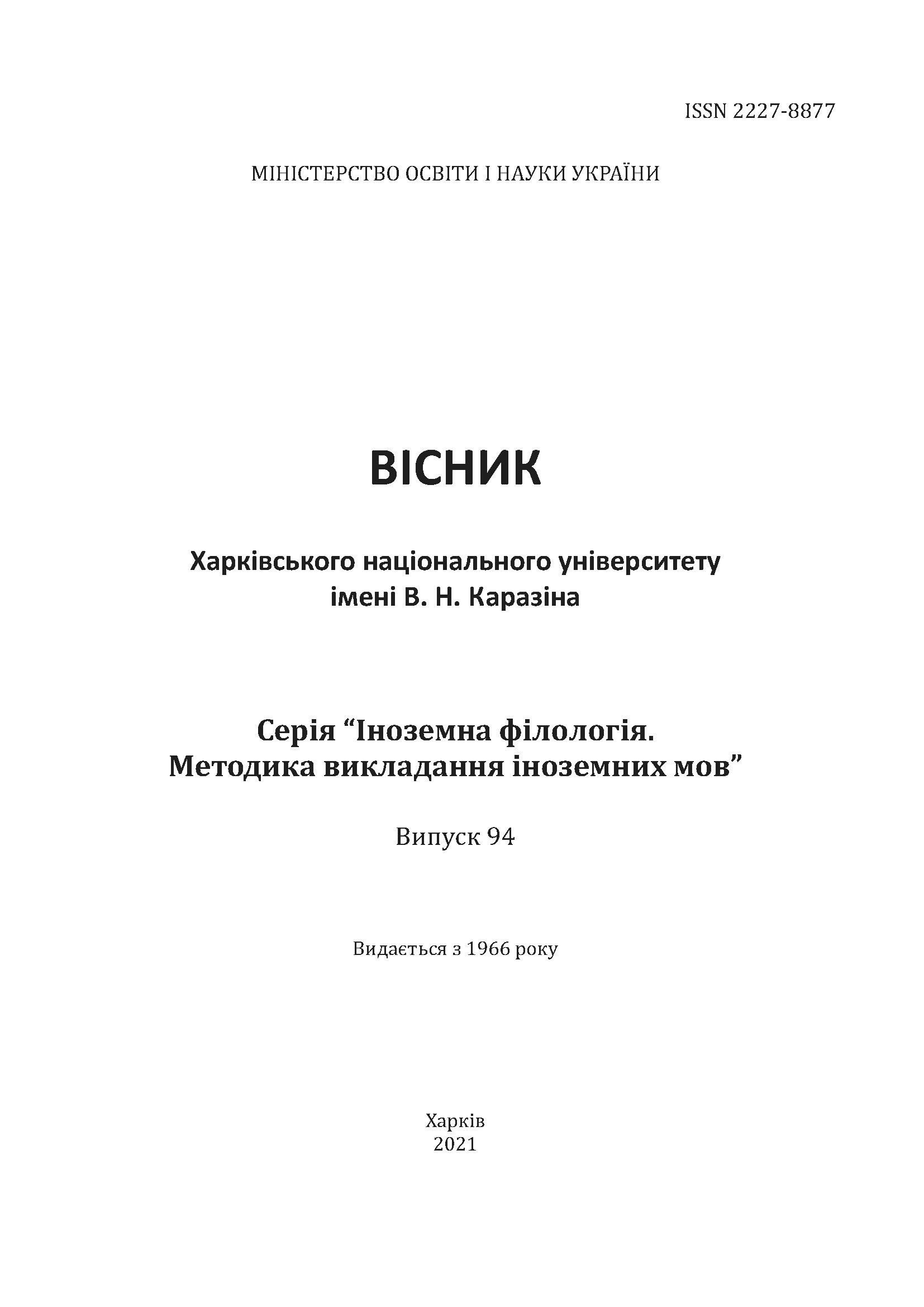Aspects of language culture formation as a component of professional culture of future specialists
Abstract
The article is devoted to the study of the problem of formation of language competence as an integral part of the language culture of future physical education teachers and trainers on the way to the formation of their professional culture during the educational process in the higher educational establishment. The author states the globalization of the approach to the use of educational opportunities, namely the improvement of professional culture, reveals the meaning of the concepts “language competence,” “language culture,” “professional culture” and “professional culture of a physical education teacher.” The article analyzes the latest research on the content of these concepts. The close connection of these concepts, their influence on each other and interaction with the concept of “the role of a physical education teacher” are analyzed. The conditionality of these components by the culturological model of the content of education is considered. Given the data of recent studies, it is concluded that the problem can be solved within a comprehensive approach to the formation of rhetorical competence. A questionnaire was conducted to identify the estimated level of language culture formation by students of higher education. It was found that issues related to the ability to speak publicly and understand the causes of communication barriers, the ability to persuade, admitting their mistakes and accepting a different point of view were assessed by students with low scores during the questionnaire. This is evidence of students' feeling of a low level of language culture, which will have a negative impact on the formation of professional culture of future sports professionals. It is concluded that awareness of this problem should lead to a rethinking of methods of forming language competence during the educational process in higher education institutions.
Downloads
References
Boguslavskaya, V. V. (2016). Modely` obrazovatel`nogo razvy`ty`ya: scenarnokommuny`katy`vnaya geopedagogy`ka [Models of educational development: Scenario-communicative geopedagogy], Proc. of the intern. sci.-pract. conf. “Education & Science” for education instructors. (pp. 57–60). (in Russian)
Filipchuk, G. G. (2007). Kul`turologichna osnova suchasnoyi osvity` [The culturological basis of the modern education]. Pedagogichna i psy`xologichna nauky` v Ukrayini (do 15 richchya APN Ukrayiny`) [Pedagogical and psychological science in Ukraine (15 anniversary of Ukraine’s APN]. (Vol. 2). Kyiv: Pedagogichna dumka, 37– 45. (in Ukrainian)
Galytska, M. M. (2013). “Kul`tura” ta “osvita”: vzayemozumovlenist` ponyat` [“Culture” and “education”: the interconnection of the meanings]. Pedagogichny`j proces: teoriya i prakty`ka [Pedagocial process: theory and practice], 4, 28–33. (in Ukranian)
Gurevy`ch, P. (2005). Kul`turology`ya [Culturology]. Moskva: Iscustvo. (in Russian)
Konev, V. A. (1998). Ontology`ya kul`tury` [Ontology of culture]. Samara: Samarsky universitet Publ. (in Russian)
Kostikova, I. I. (2006). Vy`kory`stannya metodiv pedagogichnogo doslidzhennya u procesi pidgotovky` majbutn`ogo vchy`telya [The use of methods of pedagogical research in the process of training future teachers]. Zbirny`k naukovy`x pracz` Umans`kogo derzhavnogo pedagogichnogo universy`tetu [Uman state pedagogical university synopsys], 2. Retrieved from https://doi.org/10.31499/2307-4906.2.2006.187070. (in Ukranian)
Kovalenko, J., Gnatenko, K., Fedorenko, O., Karpets, L., & Kovalenko, R. (2021). Formation of Vocational Competence of Future Specialists in Physical Education and Sports. Pedagogika [Pedagogics], 140(4), 220–236. Scopus.
Kremen`, V. G. (2012). Duxovnist` i kul`tura suspil`stva vy`znachayut`sya rozvy`tkom osvity` [The spirituality and culture of society are determined by the development of education]. Vy`shha pedagogichna shkola SPV. Universy`tet v B’yalostoci [Higher pedagogical school SPV. University in Bialostock], 45–55. (in Ukrainian)
Nikolaieva, S. Yu. (2003). Zahalnoievropeiski rekomendatsii z movnoi osvity: vyvchennia, vykladannia, otsiniuvannia [Pan-European recommendations for language education: study, teaching, evaluation]. Kyiv: Lentvint. (in Ukrainian)
Rudny`cz`ka, O. P. (2005). Pedagogika: zagal`na i my`stecz`ka [Pedagogy: general and artistic]. Ternopil’: Navchal’na knyga-Bogdan. (in Ukrainian)
Sabatovskaya, Y`. S. (2002). Problema professy`onal`noj kul`tury v sovremennoj otechestvennoj socy`ology`cheskoj ly`terature [The problem of professional culture in modern Russian sociological literature]. Vcheni zap. Khark. gumanit. un-tu “Nar. ukr. akad.” [Research bulletin of Kharkiv university of humanities “People’s Ukrainian Academy”], 9, 206–214. (in Russian)
Semionov, Yu. Y`, & Tajlor, E. (1998). Kul`turology`ya. XX vek [Culturology]. (Vol. 2). (in Russian)




